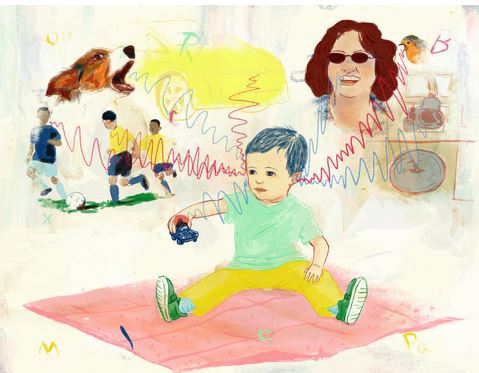Literacy Corner: The Test That Can Look Into A Child's (Reading) Future
Editor’s Note: Thank You to my friend Loren Shlaes for forwarding this fascinating article
by Cory Turner, NPR

If this isn’t an honest-to-goodness crystal ball, it’s close.
Neurobiologist Nina Kraus believes she and her team at Northwestern University have found a way — a half-hour test — to predict kids’ literacy skill long before they’re old enough to begin reading.
When I first read the study in the journal PLOS Biology, two words came to mind: science fiction.
Because flagging some 3-year-olds as potentially troubled readers — before they’ve even tried reading — feels eerily like being handcuffed by Tom Cruise in Minority Report for a crime that hasn’t happened yet.
Kraus herself says the test is nothing short of “a biological looking glass into a child’s literacy potential.”
To understand how the test works, she says, you need to understand that reading begins not with our eyes but with our ears, as we hear and catalog speech sounds. It’s hard work. Everything we hear, our brains have to process, separating the stuff that’s meaningful from pure noise. And they do it in microseconds.
“This is arguably some of the most complex computation that we ask our brain to do,” says Kraus.
Every sound creates a kind of electric reflection in the brain. Brain waves even look like the sound waves they’re reacting to. And it’s loads of information packed into these brain waves that, Kraus says, can tell her if a child who can’t yet read may have trouble reading down the road.
Read the Rest of This Article (or Listen to the Audio Story) on NPR
PediaStaff is Hiring!
All JobsPediaStaff hires pediatric and school-based professionals nationwide for contract assignments of 2 to 12 months. We also help clinics, hospitals, schools, and home health agencies to find and hire these professionals directly. We work with Speech-Language Pathologists, Occupational and Physical Therapists, School Psychologists, and others in pediatric therapy and education.
